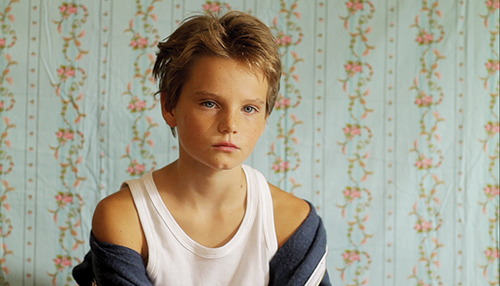I like to think I defy most pretentious film-geek cliches, but it would be difficult to pretend that I don’t love French film. Studying the language and developing a real interest in the culture probably resulted in my exposure to a lot of French cinema, but I also feel like you don’t need to speak a word of French to love their movies.
Springtime in Paris

I like to think I defy most pretentious film-geek cliches, but it would be difficult to pretend that I don’t love French film.
Studying the language and developing a real interest in the culture probably resulted in my exposure to a lot of French cinema, but I also feel like you don’t need to speak a word of French to love their movies.
While American cinema becomes increasingly corporatized, France is still rich with tales that are passionate, shocking and inspiring. And it’s not all like Amour.
Starting this Friday, 5th Avenue Cinema presents two weekends and five films that represent some of France’s finest work in recent years. Each film is presented by a different PSU professor and offers a unique look at history, culture and the modern world.
The festival’s first film is 2010’s The Women on the 6th Floor, directed by Philippe Le Guay. The film tells the story of a rich, conservative couple who live in an apartment beneath a bevy of poor Spanish maids.
“It is a perfect Friday night movie: light and amusing, yet well-acted and crafted,” said Gina Greco, the PSU French professor introducing the film. “I am most looking forward to seeing the male lead, Fabrice Luchini, who not only is very talented, but also speaks crisp, clear French that students will enjoy hearing.”
Luchini plays Jean-Louis, the husband who takes an interest in the maids and helps them with things his upper-class wife takes for granted, like getting the toilets unclogged. The film has a light and endearing feel, and at times it puts you in mind of a French version of The Help (though it feels strange to even think that exists).
It’s a little off-putting to watch Jean-Louis develop an attraction for Natalia Verbeke’s
Maria, who is about 25 years his junior, because you start to realize that these maids have pretty much fueled his midlife crisis.
I don’t know if the French have midlife crises, though, because the film is all very whimsical and encouraging of his awakening. I found the focus on some of the other maids and growing up in the aftermath of the Spanish Civil War even
more interesting.
The second film in the festival, 2011’s Tomboy, is a much different story. Written and directed by Celine Sciamma, it stars the remarkable Zoe Heran as 10-year-old Laure, who lives in the Parisian suburbs and dresses and acts like a boy. She meets a local girl and decides to identify herself as Mickael among the neighborhood children.
Tomboy is like Boys Don’t Cry for children, presented with an incredible innocence that matches its young protagonist; the film neither judges nor preaches. If it was made in America, people would call it controversial, but nothing about it actually feels that way.
Laure’s scenes with her sister, played by little Malonn Levana, are especially charming, and by the end of the film the only message seems to be that it’s OK for gender to be fluid: Laure is allowed to be masculine and feminine, both or neither.
Sri Nair, an assistant professor of Women, Gender and Sexuality Studies at PSU, is presenting Tomboy.
“Rather than view the film with preconceptions or pre-critiques, it might be helpful to understand gender (female or male, femininity or masculinity, girls or boys) through the eyes and in the world of children,” Nair said in an email. “How do the girls and boys in the film behave? How does Mickael become a boy? What is the place of adults in the film? How may we interpret the resolution of the film?”
The French Film Festival
The Women on the 6th Floor
Friday, April 19, 7 p.m.
Tomboy
Saturday, April 20, 7 p.m.
For showtimes for Seraphine, Free Men and Summer Hours go to
5thavenuecinema.org
$3 general, free for students
It is a testament to Tomboy’s eloquent subtlety that these questions naturally arise.
The second weekend of the film festival features Seraphine, Free Men and Summer Hours, and I almost wish it went on even longer. I’d love a screening of Catherine Breillat’s The Sleeping Beauty—she is one of my all-time favorite directors.
Radu Mihaileanu’s Le Concert and Mona Achache’s The Hedgehog are a couple of other recent French films I loved. Diving into French cinema is addictive because it’s a whole new world of innovative storytelling.
I had a French professor who once told me that Paris thinks it’s more important than Hollywood when it comes to making movies. I scoffed at the time, but a strong argument can be made that they’re completely justified in feeling that way.
If you’re ever feeling disillusioned about the state of film today, take a look at what the actors, directors and writers in the city of love can accomplish. They make it easy to reconcile being a cinephile and a Francophile.





